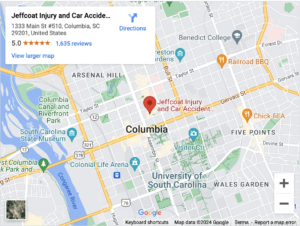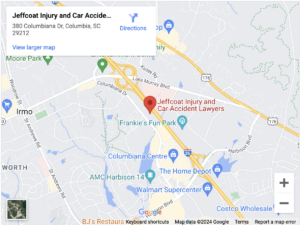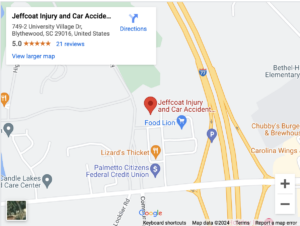
If you have been involved in a car accident in South Carolina, you can recover compensation for your injuries by hiring an experienced personal injury lawyer to represent you. An experienced lawyer can investigate your lawsuit and devise a legal plan. They will fight for your rights and hold the negligent party accountable.
Although lawyers are essential to a personal injury lawsuit, many may still shy away from hiring one. People often avoid hiring an lawyer because they believe they can’t get compensation if they are partially at fault for the accident. But this is not the case. You can still recover compensation with the help of a South Carolina personal injury lawyer.
Each state has different laws that apply comparative and contributory negligence differently. To see how much you could recover for your South Carolina car accident lawsuit, you should understand what comparative and contributory negligence is and how it affects you.
What Is The Law For Contributory Fault In South Carolina?
South Carolina has a set of rules adopted for personal injury cases. The state follows modified comparative negligence doctrines. Comparative negligence means that if the plaintiff (the party filing the lawsuit) is partially at fault for the accident, their compensation will be reduced. But they can still recover something.
South Carolina’s modified contributory fault statutes do not allow the plaintiff to recover compensation if they were found to be at greater fault for their injuries than the defendant. However, if the jury found that both parties were equally at fault, the plaintiff could still recover from the defendant.
Example Of Comparative Negligence In South Carolina
A plaintiff was driving their truck without a seatbelt when another vehicle rear-ended them. The plaintiff then jolted forward and now suffers spinal cord injuries from the collision. The second driver caused the accident by rear-ending the plaintiff.
But the plaintiff might be to blame for their injuries – at least in part – if they had not been wearing their seatbelt. They might not have suffered such serious injuries if they had worn their seatbelt.
In the above scenario, if the plaintiff was found to be 30% responsible for their injuries, then they could collect 70% of compensation from the other responsible party. If their damages were initially $100,000, then they may only be able to recover $70,000 from the responsible party. Their 30% liability is decreased from their total amount of compensation.
Do All States Follow Personal Injury Comparative Negligence Laws?
Not all states have comparative negligence laws like South Carolina. Some states allow the plaintiff to recover compensation from the other party, even if they were 99% at fault. Other states do not allow the plaintiff to recover anything if they were even 1% responsible for causing their injuries.
How Can You Prove Negligence In South Carolina?
Negligence is a legal theory used in personal injury claims to hold the responsible party accountable for their injuries. But, the plaintiff must meet the essential elements for a successful negligence lawsuit. The elements include:
- Duty: The plaintiff must show that the responsible party had a duty of care to others around them.
- Breach of duty: The plaintiff must show that the party breached their duty and failed to fulfill their legal obligation. For example, there may be a case where a landowner is unable to wipe the wet floors of a hotel lobby, which causes a slip-and-fall accident.
- Causation: The plaintiff must show that the responsible party’s conduct led to the injuries.
- Damages: The plaintiff must show they must now be compensated monetarily for their losses.
How Can I Limit My Contributory Fault In South Carolina?
After an accident, you will want to minimize your liability. As a plaintiff, you are responsible for ensuring your injuries are evaluated by a medical provider immediately. The longer you wait to seek medical treatment after an accident, the more you could be at fault for causing your injuries. For example, if you had internal bleeding and didn’t seek medical attention, it could cause organ failure.
You must follow up with doctor’s appointments and continue treatment, as advised. Failure to do so could also be used against you when you are seeking recovery.
Who Determines Contributory Fault In South Carolina?
In South Carolina, the jury determines the contributory fault percentage in personal injury cases. The jury hears both sides of the case and then decides a percentage for each party. The percentage ranges from 0% to 100%. In bench trials, the judge listens to both sides and then determines the percentage of fault.
We Work Hard To Make Sure You Get The Amount You Deserve
Whether you have suffered minor or catastrophic injuries, you should have your case evaluated by an experienced lawyer. Contact a top-rated South Carolina personal injury lawyer from Jeffcoat Injury and Car Accident Lawyers at (803) 200-2000 to investigate your case.








